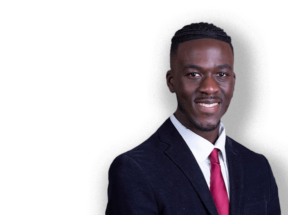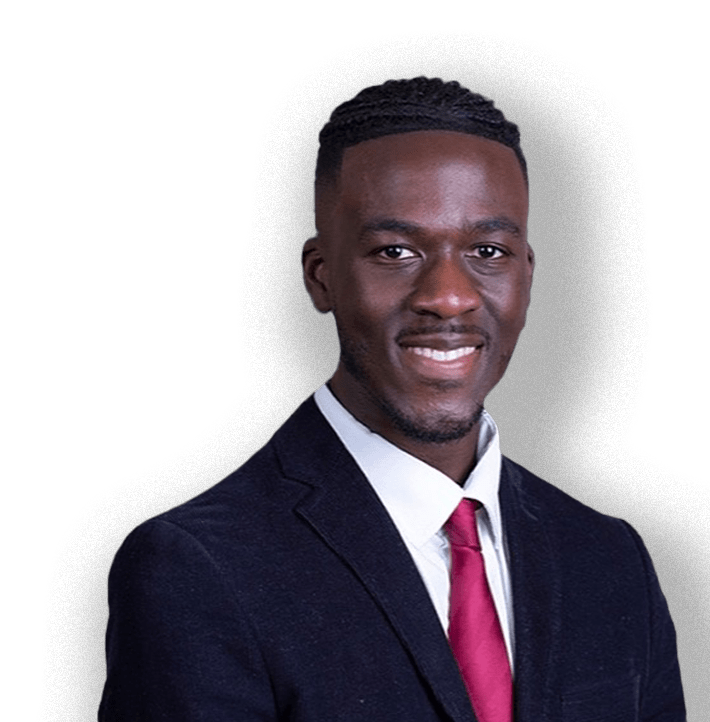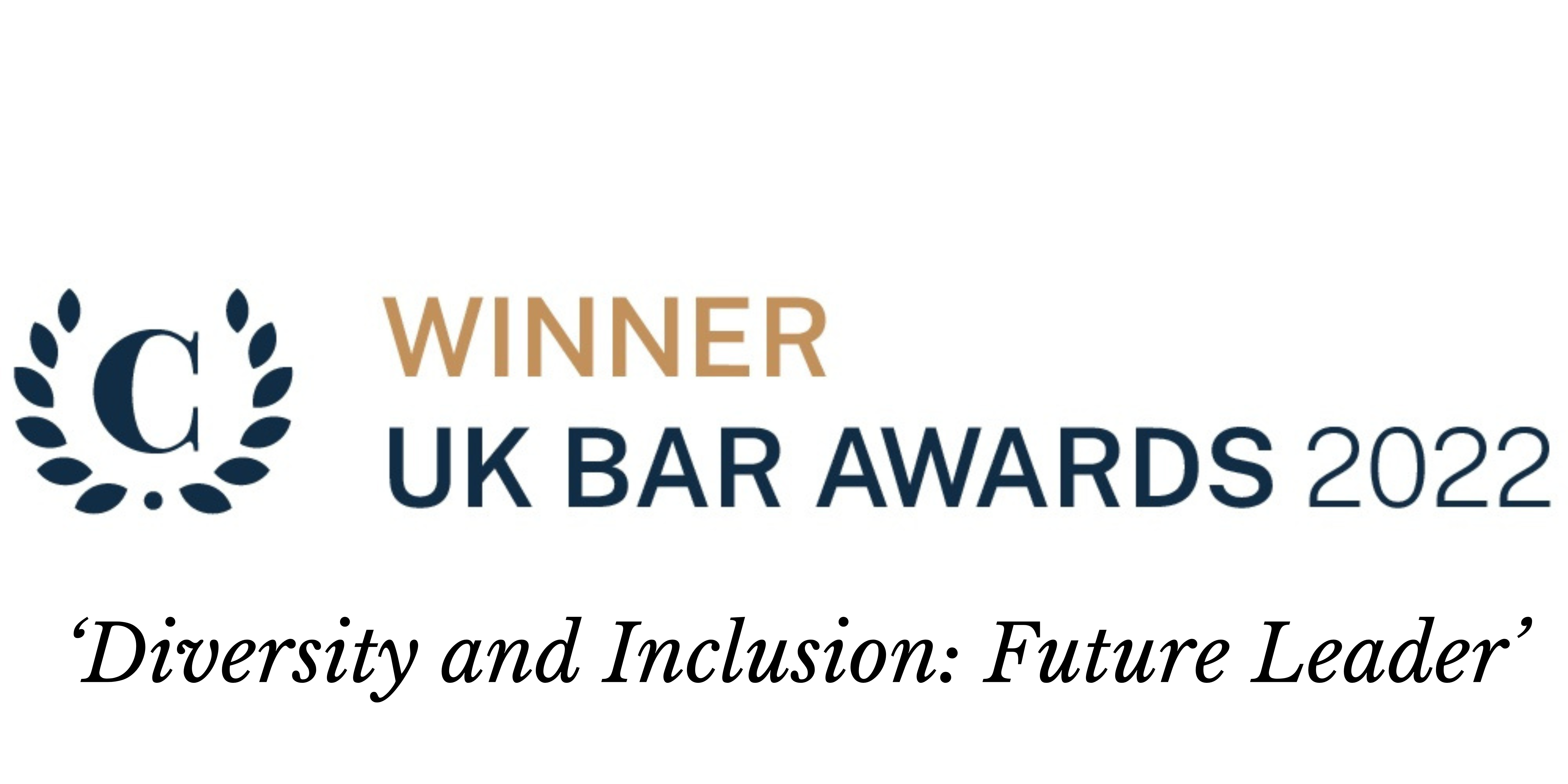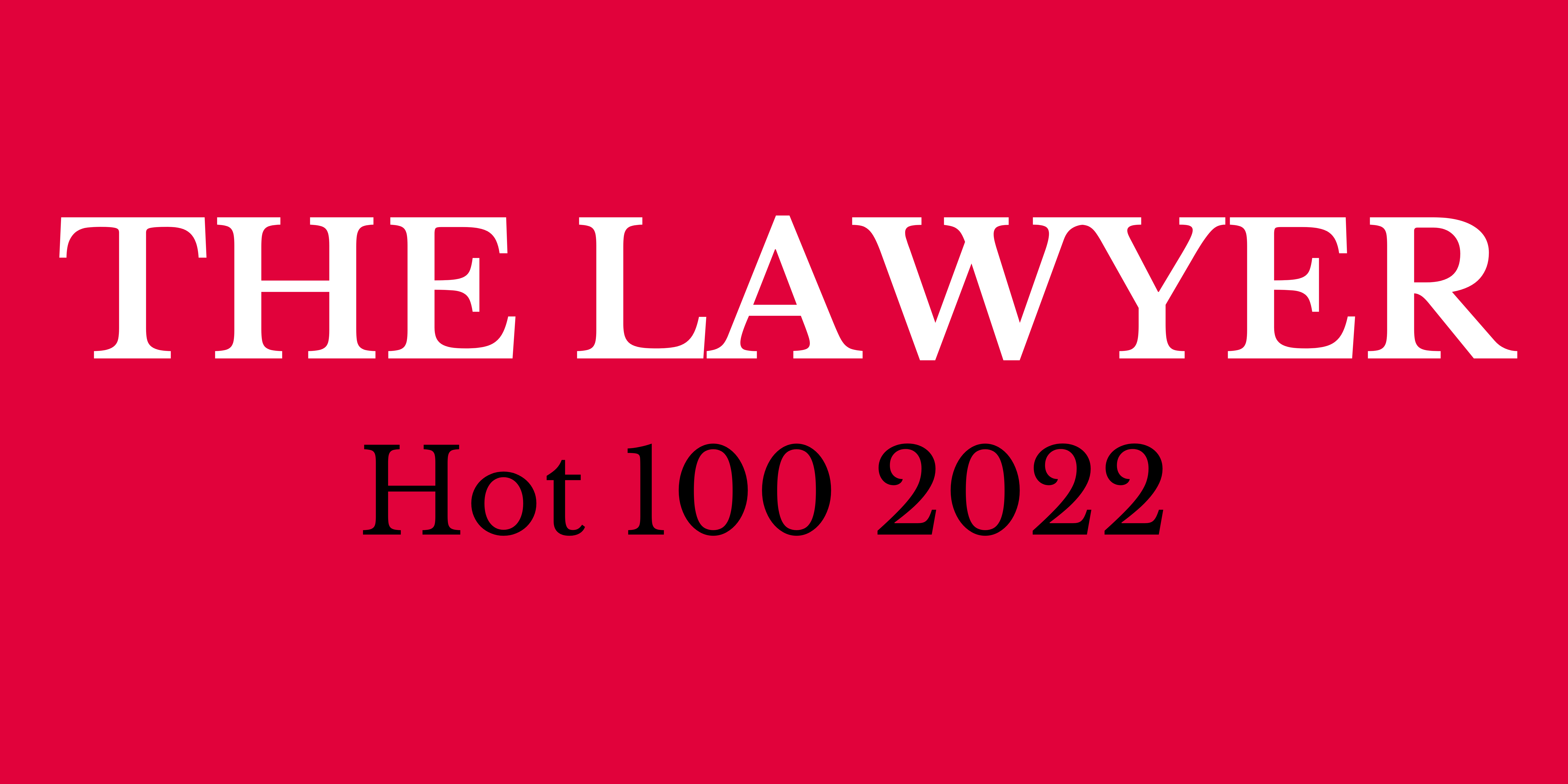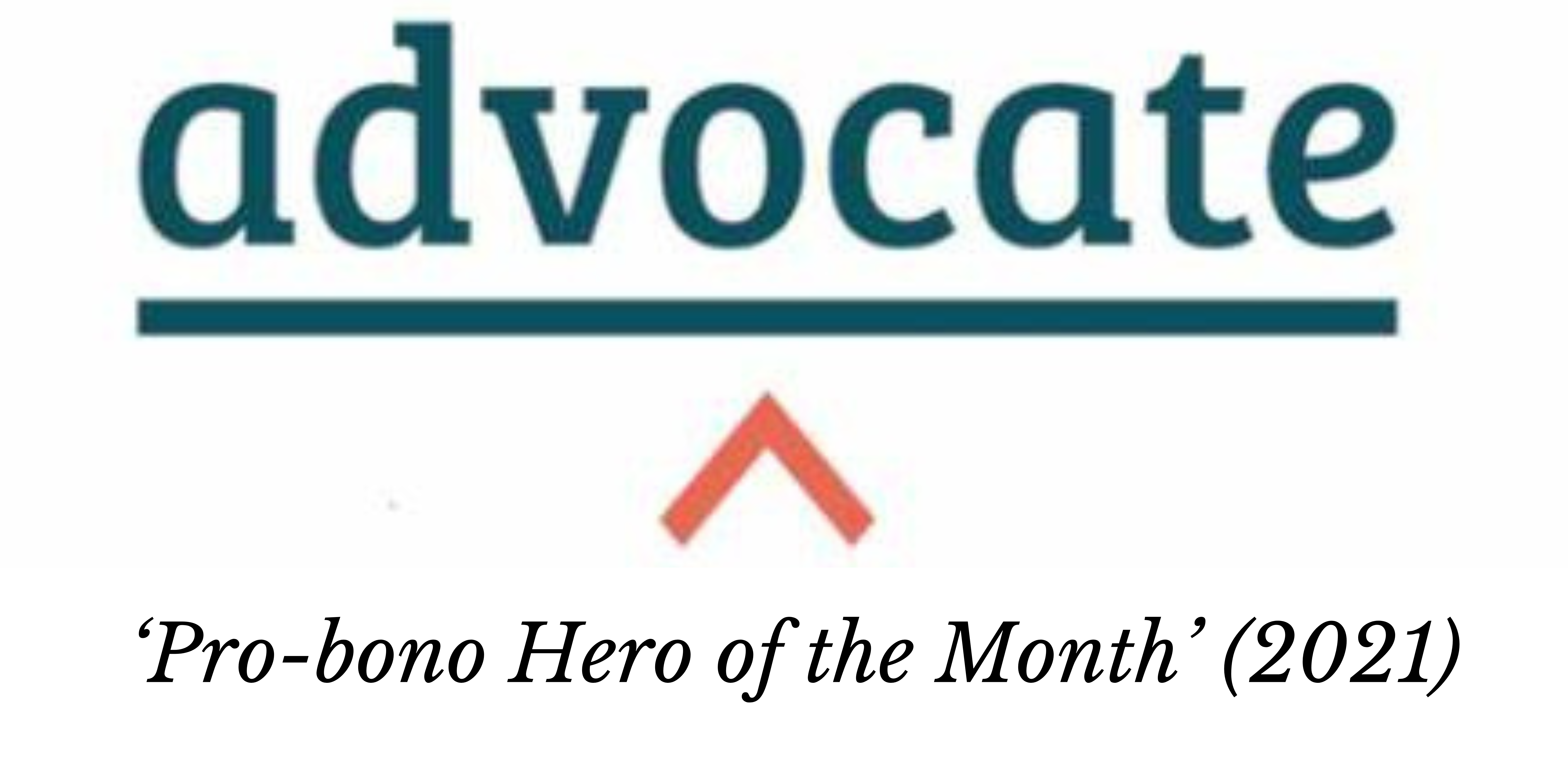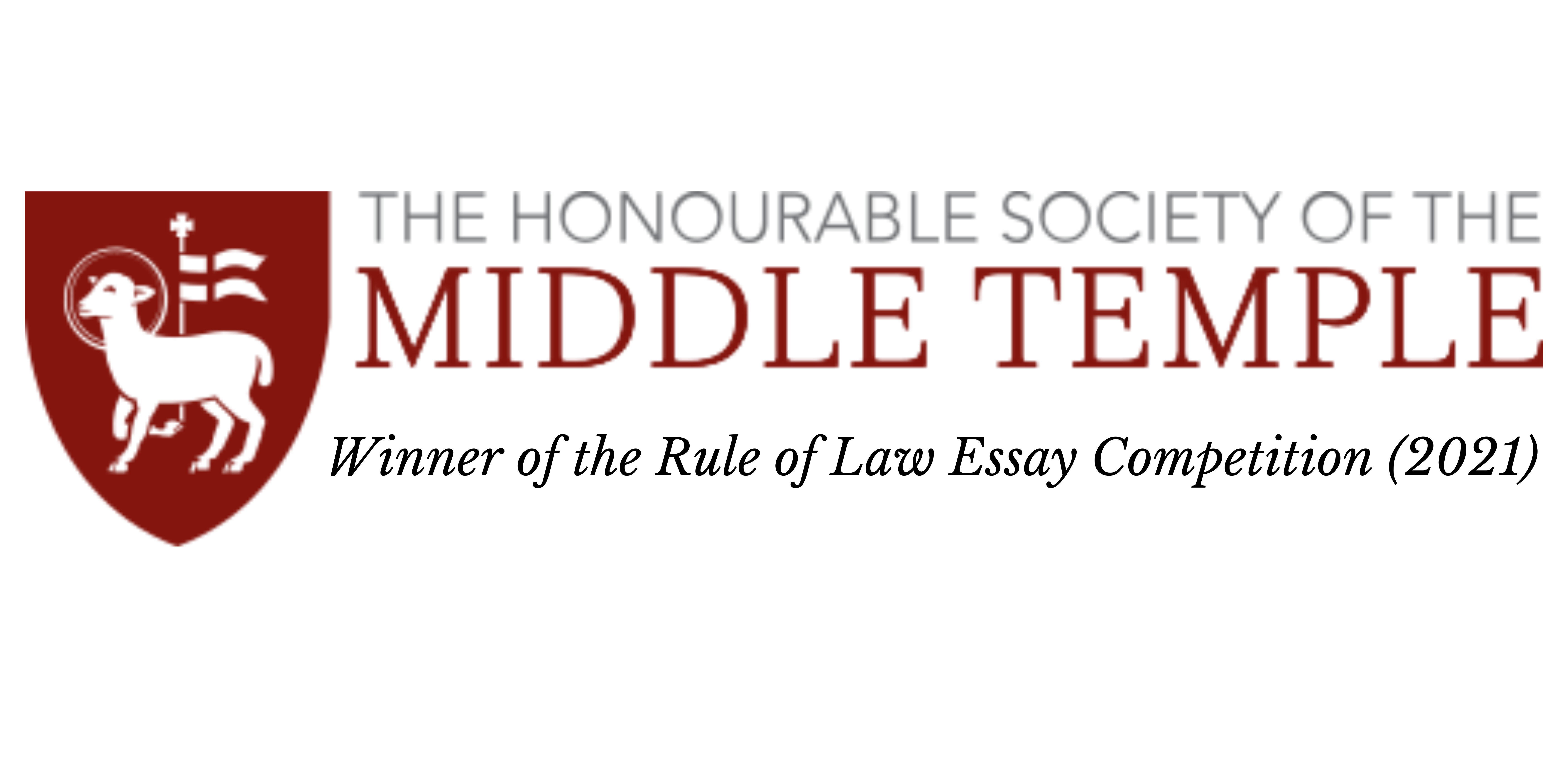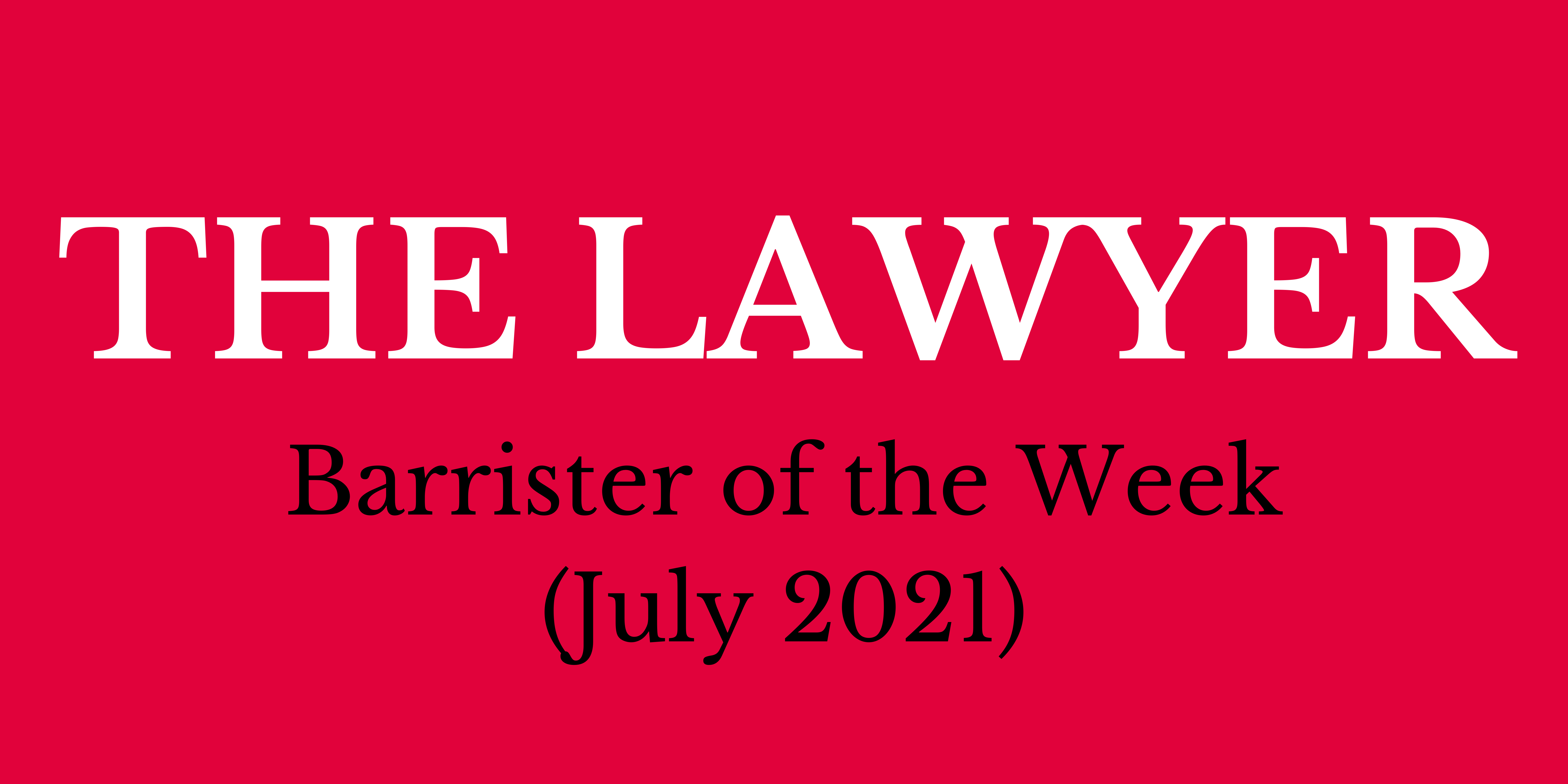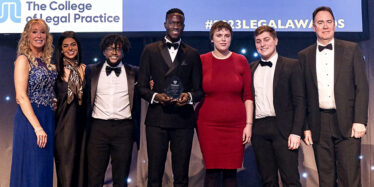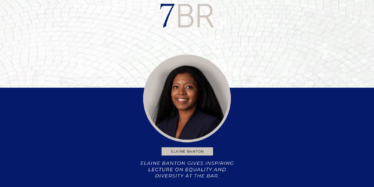Instructing Mass Ndow-Njie
For more information please contact our clerks by calling +44 (0)20 7242 3555.
Mass Ndow-Njie is a multi-award-winning barrister specialising in clinical negligence law, inquests & inquiries, sports law, personal injury law and international matters. He joined 7BR Chambers in September 2021 and has gone on to build a busy practice which has led to Chambers & Partners describing him as having “built a reputation as a leading barrister across a number of practice areas”.
Mass’ reputation as a leading barrister has been recognised by numerous prominent publications and legal awards. In July 2020, Mass became the first ever Pupil Barrister to be recognised as ‘Barrister of the Week’ by leading legal publication, The Lawyer. In January 2021, he was recognised as Advocate’s ‘Pro-bono Hero of the Month’ and later that year, in November 2021, Mass was presented with two awards in quick succession after he was declared as the winner of the Middle Temple Young Barristers Association (MTYBA) Rule of Law Essay Competition and was commended at the 2021 Chambers and Partners Awards Ceremony. In January 2022, Mass was named as one of the UK’s top 100 lawyers by the prominent legal publication, The Lawyer, in their annual Hot 100 feature. In November 2022, he was declared as the winner of a Future Leader Award at the 2022 Chambers and Partners Awards Ceremony.
Mass is a confident orator and has delivered keynote speeches within various academic, corporate and legal spaces. He has spoken to audiences in the UK Supreme Court, the Inns of Court, various universities and other private organisations.
Mass is committed to enhancing the equality of access into the legal profession. Most notably, he is the founder and chairperson of Bridging the Bar, a multi-award-winning charity which aims to support aspiring barristers from statistically underrepresented groups.
Legal Expertise
Clinical Negligence
Mass is regularly instructed on matters beyond his level of call to advise on all aspects of claims in this area, including liability, merits, causation and quantum. He is often praised for his ability to draft precise and persuasive pleadings, in addition to his ability to offer sharp strategic litigation advice.
Mass has a proven track record of success at trial and has experience of the full life cycle of a clinical negligence claim. Mass therefore welcomes instructions in all stages of new and existing clinical negligence claims – although his clients have found it particularly advantageous to secure Mass’ involvement at the earliest stages of a claim.
Mass has acted for families in inquests where issues relating to clinical negligence have arisen and he is often also instructed by his clients to represent them in high value related civil claims. Accordingly, Mass is a confident orator and skilled advocate, regularly cross-examining leading medical experts, and has represented the estate of deceased persons in claims brought under the Fatal Accidents Act 1846 and the Law Reform (Miscellaneous Provisions) Act 1934.
Mass’s recent clinical negligence instructions include matters concerning the alleged:
- negligent surgery causing tetraplegia.
- negligent care provided by care homes and nursing homes.
- negligent care provided to individuals that are in labour.
- misdiagnoses or delayed diagnoses in a range of different contexts, including cancer.
- negligent dental treatment.
- negligent application of laser eye treatment.
- negligent treatment causing blindness.
- the mismanagement of strokes.
- the mismanagement of peripheral vascular disease.
- the mismanagement of complex otological conditions including cholesteatoma.
- the mismanagement of complex gastroenterological conditions.
- the mismanagement of complex neurological symptoms.
Inquests & Inquiries
Mass is regularly instructed to act in lengthy inquests on behalf of families. He has appeared in the Coroners’ courts in numerous Article 2 inquests and jury inquests, and has a successful track record of persuading coroners to make Prevention of Future Death reports in appropriate cases.
Mass has acted in inquests exploring a wide range of complex and sensitive issues, and he is frequently also instructed by his clients to represent them in high value related civil claims.
Mass has acted in inquests where the nature of the deceased person’s death prompted an investigation into the possible role of clinical negligence; the improper conduct of law enforcement resulting in death; and the negligence of care providers resulting in the death of patients detained under the Mental Health Act. Consequently, Mass is a confident orator and skilled advocate, having regularly questioned leading experts across a range of disciplines in complex inquests.
Mass has a proven track record of working well within teams, and in June 2022, Mass was appointed as junior counsel to the UK Covid-19 Inquiry by Baroness Hallett, Chair of the Inquiry. Mass commenced work on the Inquiry’s first module, ‘Resilience and Preparedness’, which examined how prepared the UK was to respond to the pandemic. He remains instructed to assist with later modules.
Notable Inquests & Inquiries cases
UK Covid-19 Inquiry (2022 - ongoing)
In June 2022, Mass was appointed as junior counsel to the UK Covid-19 Inquiry by Baroness Hallett, Chair of the Inquiry. Mass commenced work on the Inquiry’s very first module titled ‘Resilience and Preparedness’. This Module has heard evidence focussed on how prepared the UK was to respond to a pandemic. For his work on this module, Mass was led by Hugo Keith KC (Lead Counsel to the Inquiry) and Kate Blackwell KC. Mass is also instructed to work on later Modules for the UK Covid-19 Inquiry.
Inquest into the death of AD (2023)
Mass was instructed in this inquest to represent the family of a man who was died after a venous needle dislodged from his dialysis machine and caused him to lose a significant amount of blood. The dialysis machine alarm parameters were incorrectly set and so these failed to alert nursing staff to the dislodged venous needle. In this regard, the Coroner’s conclusion noted “The parameters to trigger the alarm had been set much lower than usual practise or policy on the unit”.
Inquest into the death of JF (2023)
Mass was instructed in this two-week jury inquest to represent the family of a man who was sectioned under s.2 of the Mental Health Act 1983 but nonetheless managed to abscond from hospital before jumping from a bridge and ending his life. The deceased had previously been assessed to have represented a suicide risk and a risk of absconding. Furthermore, he had previously successfully absconded on two separate occasions in the days leading up to his unfortunate death. The Jury returned a narrative conclusion which stated “[…] failures in information recording and sharing, and failures to provide appropriate staff to mitigate an accepted risk of absconding and self-harm contributed to his death.”
Inquest into the death of Leo Gradwell (2023)
Mass was instructed in this multi-day jury jury Inquest which investigated the death of a 14-year-old boy who died following a road traffic accident. The road traffic accident occurred shortly after the police commenced a pursuit of the vehicle that the deceased was travelling in. The Inquest explored questions around (a) the appropriateness of the police pursuit; (b) the adequacy of police communications in the build-up to the pursuit; and (c) the appropriateness of medical intervention following the collision. The inquest was the subject of significant press attention and was covered in national and regional press outlets.
Inquest into the death of Donald Miller (2022)
Mass was instructed in this multi-day inquest to represent the family of a man who died in a nursing home after he mistakenly pulled out his tracheostomy tube and staff were unable to re-insert it. The Coroner returned a narrative conclusion which noted that the deceased was discharged from hospital to a nursing home without the requirement for “one-to-one care [being] included in updated communications between agencies” and without “funding for it [being] in place”.
Inquest into the death of P (2022)
Mass was instructed in this inquest to represent the family of a lady with depressive order and psychotic symptoms who committed suicide during a period of overnight leave from hospital. The Coroner concluded that relevant risk assessments were compromised because there was a failure to consider that the deceased was “at an elevated risk of suicide” and her family were not informed of there being any risk of suicide.
Inquest into the death of Balford Glaister Foster (2022)
Mass was instructed in an inquest to represent the family of a man who died in hospital after being diagnosed as having sepsis and appendicitis. The coroner returned a narrative conclusion which included a comment that the deceased died “in part due to the late diagnosis”.
Inquest into the death of Stephen Verrall (2021)
Mass was instructed in this multi-day jury inquest to represent the family of a man who died after falling from the window of a nursing home. The jury returned a lengthy narrative conclusion which recognised that the deceased’s death was avoidable. The narrative included (amongst other things) the statement that “there was a failure to meet health and safety guidelines which the home had a responsibility to be aware of.” Furthermore, the coroner issued a regulation 28 prevention of future deaths report. The inquest was covered by various press outlets.
Sports Law
Mass welcomes instructions in cases arising in a wide range of sporting contexts and he accepts direct-access instructions in suitable sports cases. He acts for sports clients performing at all levels of their respective sports and his clients include Premier League football players and their intermediaries. He welcomes instructions from players/athletes, managers, intermediaries, clubs and sporting bodies on a wide range of matters arising in a sporting or commercial context.
During his pupillage, Mass was exposed to various sporting cases where his supervisors were representing clients which included Premier League football clubs and a Formula One racing team. Following his pupillage and as sole counsel, Mass has since been instructed in multiple sports cases and has appeared on several occasions before Football Association (‘FA’) panels, including the FA Serious Case Panel and the FA Appeal Board.
Mass’s written work in this field has also been published by widely acclaimed sports law publications such as Law in Sport and Football Law. He is an FA qualified football coach, and prior to joining the Bar, he worked as a football coach for a Premier League Football Club. He is a keen sportsman himself, and as such, he is familiar with the rules of various other sports.
Notable Sports Law cases
Advising on a Premier League Transfer (2023)
Mass was instructed to advise Carlos Baleba’s team on his recent transfer from Lille Olympique Sporting Club, a top-flight French based football club, to Brighton and Hove Albion F.C, a football club playing in the English Premier League. The transfer was widely reported in the national and international press.
Advising a football player on liability arising from a dangerous tackle (2023)
Mass was asked to advise on the merits of bringing a civil claim after a dangerous football tackle caused the potential Claimant to suffer serious injuries (resulting in an admission to intensive care).
Advising spectators on liability arising after away fans infiltrated the area designated for home fans (2023)
Mass was asked to advise multiple football fans who visited the stadium of a Premier League Club but were injured after opposition fans infiltrated the area designated for home fans and started a fight.
Representing a football player charged with Assault on a Match Official (2022)
Mass was instructed to represent a football player charged with Assault against a match official. The matter was heard by the FA Serious Case Panel at first instance who found the player guilty of assault and (amongst other things) banned the player from all footballing activities for a period of 5 years. Mass represented the player on an appeal to the FA Appeal Board which overturned the decision. Mass successfully argued that the player was instead guilty of a lesser offence of ‘Improper conduct against a match official’ (to which he pleaded guilty). As a result, the player’s footballing ban was reduced from five years to just one year.
Representing a football club charged with playing an ineligible player (2022)
Mass represented a football club charged with playing an ineligible player in four different matches. Mass successfully argued that any charges relating to the first two games were time-barred and that mitigating circumstances relating to the third and fourth matches meant that any punishment should be minimal.
Representing a football player charged with multiple counts of improper conduct (2021)
Mass was instructed to represent a football player charged with (1) improper conduct aggravated by reference to a person’s colour and race; (2) improper conduct including foul and abusive language; (3) improper conduct including threatening behaviour. Following Mass’s early intervention in the matter the case was closed against his client without the need for a hearing.
Personal Injury
Mass has a broad range of experience acting in personal injury cases for both Claimants and Defendants. He has appeared in the County Court and the High Court in fast-track and multi-track cases. His work in this area covers a wide range of matters, including sports claims, product liability claims, workplace accidents, occupiers’ liability claims and Highways Act claims. He also has a keen interest in group action claims, cross-border claims and claims in international jurisdictions.
Mass is a regular contributor to key legal publications in this area of law. He is a contributing editor for the highly-regarded book, ‘APIL Personal Injury Law, Practice and Precedents’. Mass is also the author of an opinion which examines a potential class-action case after toxic cough syrups allegedly caused the deaths of over 70 children in The Gambia. This opinion was published in the ‘International Family Law Journal’ and more widely by the Gambian media.
Mass is regularly instructed on matters beyond his level of call to advise on all aspects of claims in this area, including liability, merits, causation and quantum. He is often praised for his ability to draft precise and persuasive pleadings, in addition to his ability to offer sharp strategic litigation advice.
Mass has experience successfully representing individuals faced with allegations of fundamental dishonesty and representing multiple Claimants in the same set of proceedings. He is also well-versed in communicating via interpreters in relevant cases.
International
Mass welcomes instructions in cross-border disputes and other cases originating outside of the jurisdiction of England and Wales. In January 2024, he was called to the Bar of the Gambia and enrolled as a legal practitioner in The Gambia. As early as his pupillage, he was exposed to a range of cases involving multiple jurisdictions such as Monaco, Thailand and Ukraine.
Mass spent the first two years of his practice working at the UK Government Legal Department (‘GLD’) where he conducted advisory work for a wide range of government departments. Since joining the self-employed Bar, Mass has continued to be instructed by government departments to advise on public law and constitutional law matters. He retains a strong interest in assisting with public law and constitutional law cases in foreign jurisdictions.
Mass is particularly keen in pursuing cross-border claims and class action claims in foreign jurisdictions. He is the author of an opinion which examines a potential class-action case after toxic cough syrups allegedly caused the deaths of over 70 children in The Gambia. This opinion was published in the ‘International Family Law Journal’ and more widely by the Gambian media.
Mass is happy to accept instructions as sole counsel or to join an existing team of lawyers. He has a proven track record of working well within teams having previously been instructed to join the legal team for multiple national inquiries in the UK, including the UK Covid-19 Inquiry and the Post Office Inquiry.
Instructing Mass Ndow-Njie
For more information please contact our clerks by calling +44 (0)20 7242 3555.
For help or advice please call +44 (0)20 7242 3555 or complete the form below
A member of the Clerking team will help you resolve your request.
Frequently asked questions
Do you have an out of hours number?
Yes, please call Chambers mainline number +44 (0)20 7242 3555 and you will be directed to the out of hours phone lines.
How can I find out whether 7BR can take my case?
As a direct access client, please visit our direct access page and complete the initial form, a member of the clerking team will then be in touch to discuss the next steps.
Will my barrister deal with all the correspondence?
Some barristers have the ability to “conduct litigation” for direct access clients. Our clerks will be able to assist you as to which of our members are trained and accredited to do so.
How do I instruct a barrister?
Please visit our direct access page for the initial steps on instructing a barrister, or contact our clerks on +44 (0)20 7242 3555.


